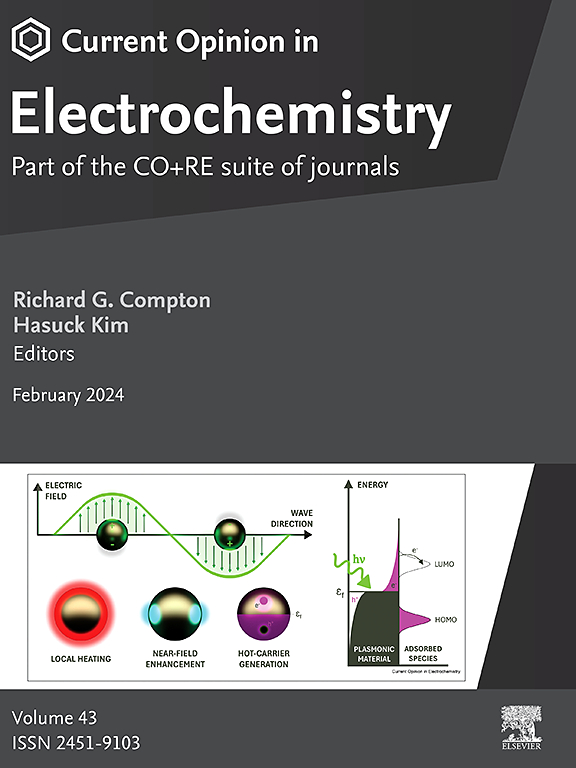The role of interfacial water in promoting C–C coupling during CO2 electroreduction
IF 6.9
2区 化学
Q1 CHEMISTRY, PHYSICAL
引用次数: 0
Abstract
The electrochemical reduction of CO2 (CO2RR) into hydrocarbons and oxygenates presents a promising pathway toward a carbon-neutral energy cycle, but achieving selective product formation remains a challenge. While extensive efforts have focused on catalyst design and electrolyte composition, the role of the interfacial water properties, an often-overlooked parameter, has only recently come under investigation. Water serves as the primary proton donor (in aqueous electrolytes) in the absence of hydronium, which can influence the competition between CO2RR and the hydrogen evolution reaction (HER). Despite studies dating back to the 1980s demonstrating that electrolyte composition significantly impacts CO2RR performance, the effects of the electrolyte composition on the interfacial water properties have remained largely unexplored. Recent findings suggest that tuning the interfacial water properties can influence C–C coupling by altering solvation environments and stabilize reaction intermediates. This perspective explores how tuning the interfacial water properties improves C–C coupling, providing a new strategy for improving catalysis.
CO2电还原过程中界面水促进C-C耦合的作用
电化学还原CO2 (CO2RR)为碳氢化合物和含氧化合物提供了一条通往碳中性能量循环的有希望的途径,但实现选择性产物形成仍然是一个挑战。虽然人们在催化剂设计和电解质组成方面投入了大量的精力,但界面水性质(一个经常被忽视的参数)的作用直到最近才得到研究。在不存在水合氢离子的情况下,水作为主要质子供体(在含水电解质中),会影响CO2RR之间的竞争和析氢反应(HER)。尽管早在20世纪80年代就有研究表明,电解质成分会显著影响CO2RR性能,但电解质成分对界面水性质的影响在很大程度上仍未被探索。最近的研究表明,调整界面水性质可以通过改变溶剂化环境和稳定反应中间体来影响C-C耦合。这一观点探讨了调整界面水性质如何改善C-C耦合,为改善催化提供了一种新的策略。
本文章由计算机程序翻译,如有差异,请以英文原文为准。
求助全文
约1分钟内获得全文
求助全文
来源期刊

Current Opinion in Electrochemistry
Chemistry-Analytical Chemistry
CiteScore
14.00
自引率
5.90%
发文量
272
审稿时长
73 days
期刊介绍:
The development of the Current Opinion journals stemmed from the acknowledgment of the growing challenge for specialists to stay abreast of the expanding volume of information within their field. In Current Opinion in Electrochemistry, they help the reader by providing in a systematic manner:
1.The views of experts on current advances in electrochemistry in a clear and readable form.
2.Evaluations of the most interesting papers, annotated by experts, from the great wealth of original publications.
In the realm of electrochemistry, the subject is divided into 12 themed sections, with each section undergoing an annual review cycle:
• Bioelectrochemistry • Electrocatalysis • Electrochemical Materials and Engineering • Energy Storage: Batteries and Supercapacitors • Energy Transformation • Environmental Electrochemistry • Fundamental & Theoretical Electrochemistry • Innovative Methods in Electrochemistry • Organic & Molecular Electrochemistry • Physical & Nano-Electrochemistry • Sensors & Bio-sensors •
 求助内容:
求助内容: 应助结果提醒方式:
应助结果提醒方式:


